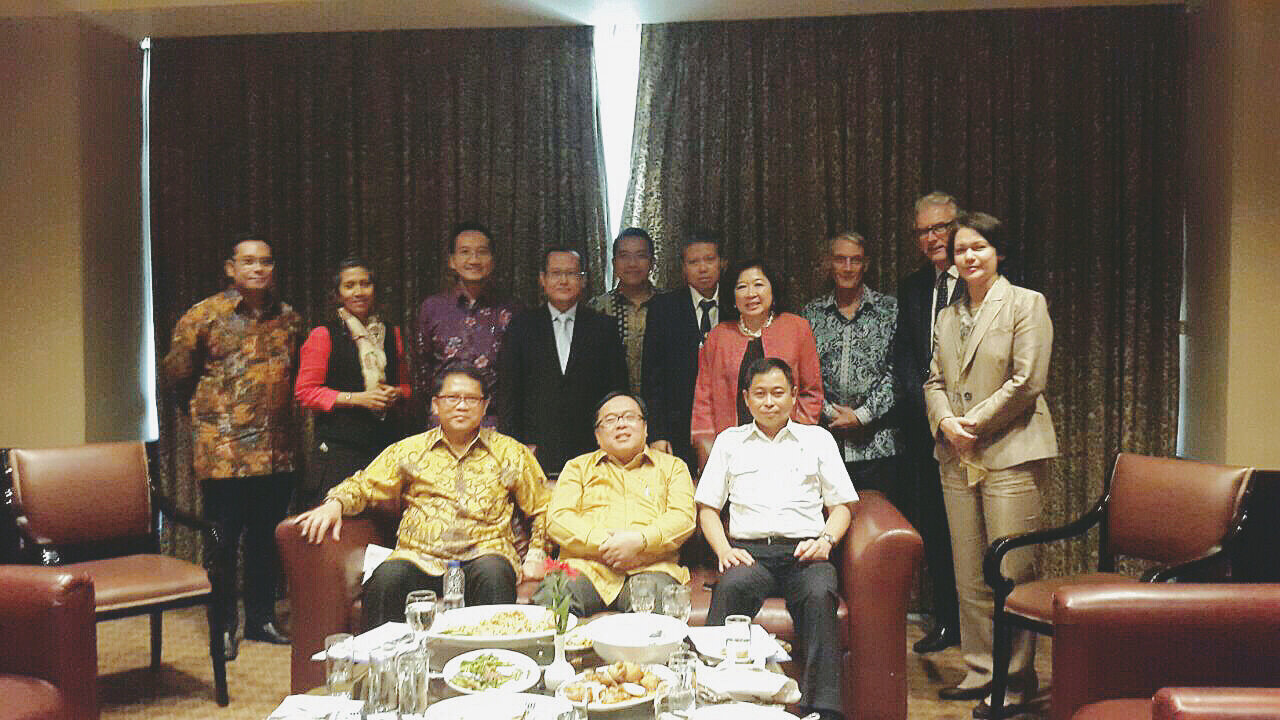On 12 April 2016, the ANU Indonesia Project, in collaboration with the Institute for Economic and Social Research, Faculty of Economics and Business – Universitas Indonesia (LPEM FEB UI) and the Indonesia Services Dialogue (ISD) conducted the Tenth Sadli Lecture and International Services Summit 2016. Professors Mari Pangestu of Universitas Indonesia and Christopher Findlay of The University of Adelaide delivered a lecture on the “Services Sector as a Driver of Change: Indonesia Experience in the ASEAN Context”, based on a paper in April edition of the Bulletin of Indonesian Economic Studies (BIES).
More than 250 people attended the Lecture, and ISD members from the private sector made up a significant number of participants, in addition to academics, researchers, government officials and international donor & development agency representatives, who in previous years made up the bulk of the Lecture participants.
The Indonesia Minister of Trade H.E. Thomas Lembong delivered the keynote remarks in the morning, in which he iterated the importance of the services sector to the current cabinet. The Director General of World Trade Organization (WTO) H.E. Roberto Azevêdo made brief remarks on the status of negotiations within the WTO, and how services sector considerations are being integrated into preliminary discussions. The discussants for the Findlay and Pangestu paper were Professor Ari Kuncoro of FEB UI and Adam Schwarz, the CEO of Asia Group Advisors. After lunch, the Indonesia Minister of Transportation, H.E. Ignasius Jonan, Minister of Telecommunication and Information Technology H.E. Rudiantara, and Minister of Finance, H.E Professor Bambang Brodjonegoro, delivered their remarks on the issues of services and development in Indonesia. In the afternoon, a panel of seasoned, prominent professionals discussed challenges and opportunities for growth especially from the standpoint of services sector providers and users.
Among the participants were Professors Emil Salim, Mayling Oey-Gardiner and Sri Moertiningsih Adiutomo of the University of Indonesia, Dr. Yose Rizal of CSIS, and the family of the late Mohamad Sadli.
Abstract
Given the slow growth trajectory post-global financial crisis, many countries are looking for new sources of growth and productivity within sectors and in new sectors. In Indonesia, which has enjoyed the commodity boom, the need to diversify and enhance competitiveness in non-primary sectors, including the services sector, is even more acute. By various performance indicators, the Indonesian services sector ranks below those of its main ASEAN neighbours. This is concerning for Indonesia, given the increased attention worldwide on the services sector as a likely source of growth, the contribution of the services sector to the competitiveness of other sectors, and the opportunities available for capturing the gains from innovation and change in services. While there is scope to increase the number of formal jobs in the sector and dispel its reputation as Indonesia’s employer of last resort, further development, however, will require overcoming restrictive policy regime which contributes to the sector’s poor performance, and strategies for reform are needed.*
*Findlay, Christopher and Mari Pangestu. 2016. “The Services Sector as a Driver of Change: Indonesia’s Experience in the ASEAN Context”. Bulletin of Indonesian Economic Studies, Vol. 52 No. 1: 27-53
**All pictures in this post courtesy of ISD












